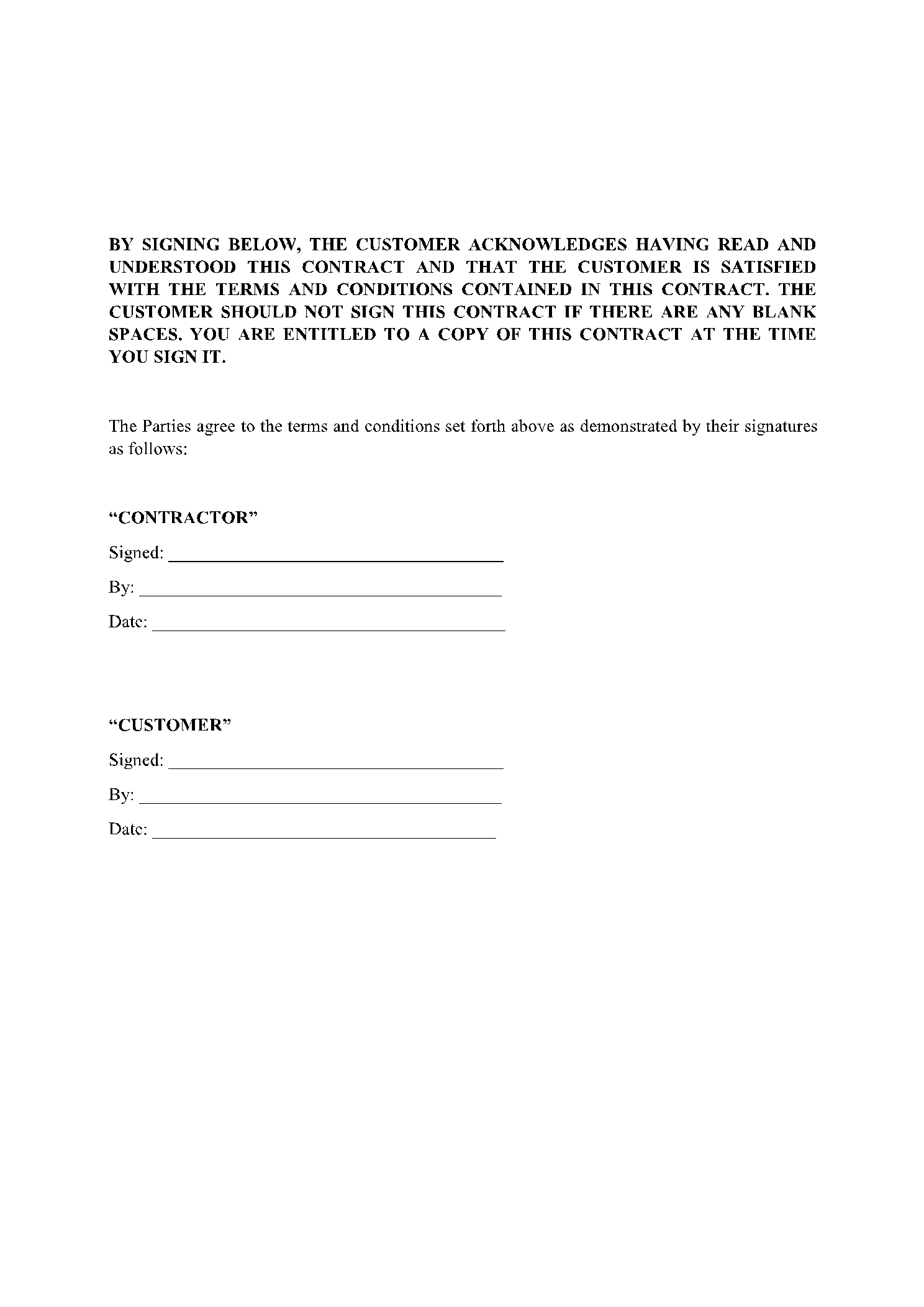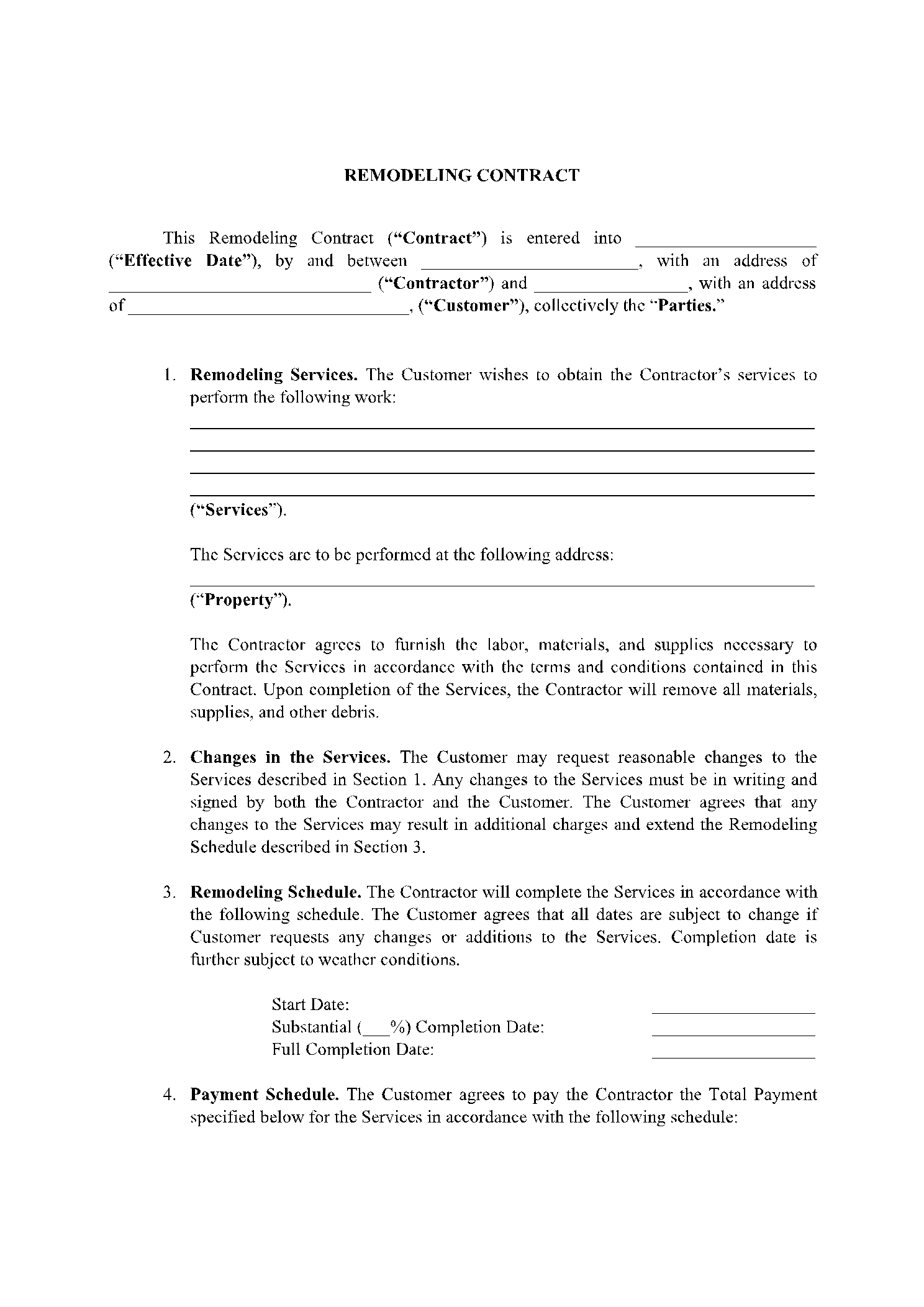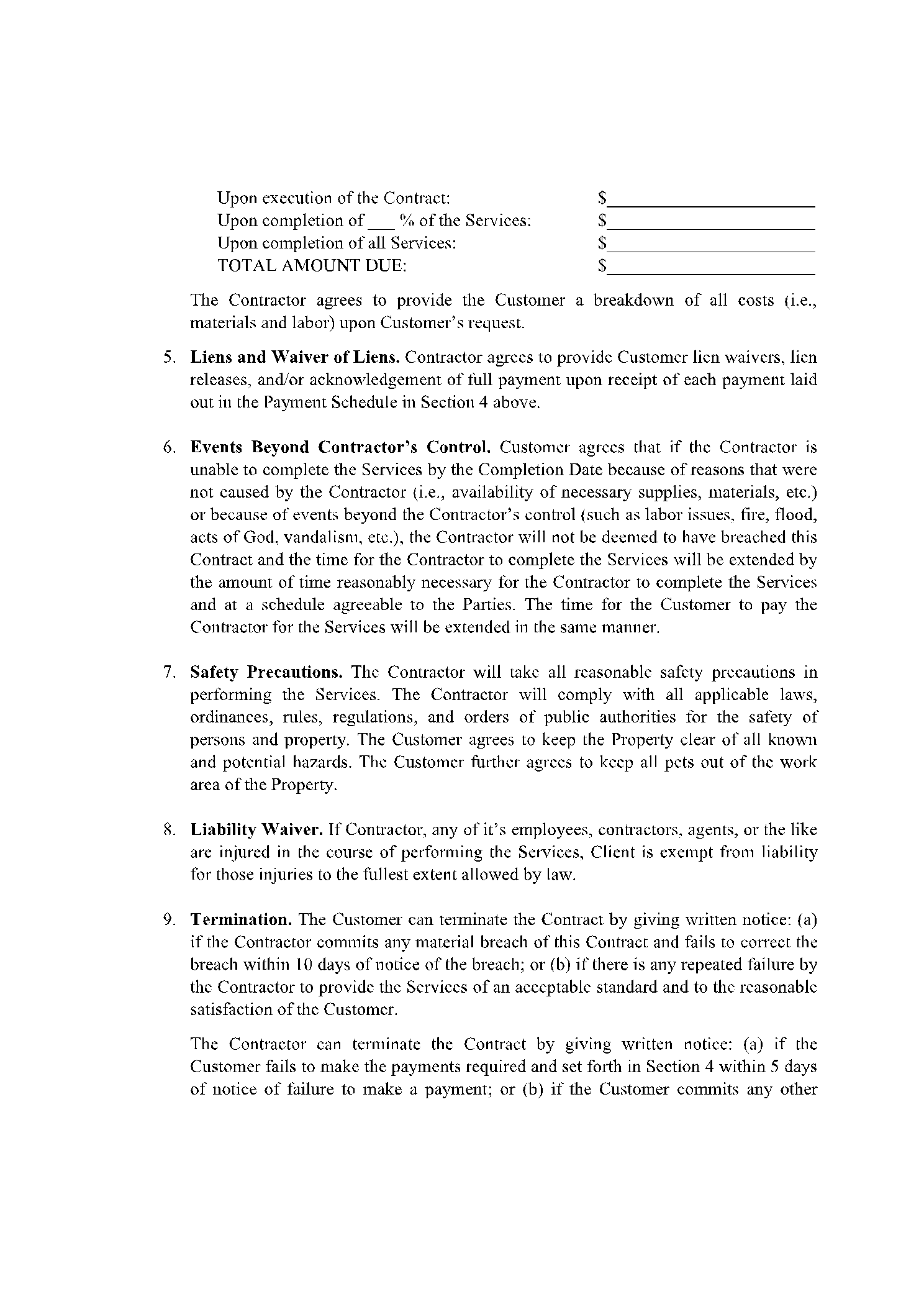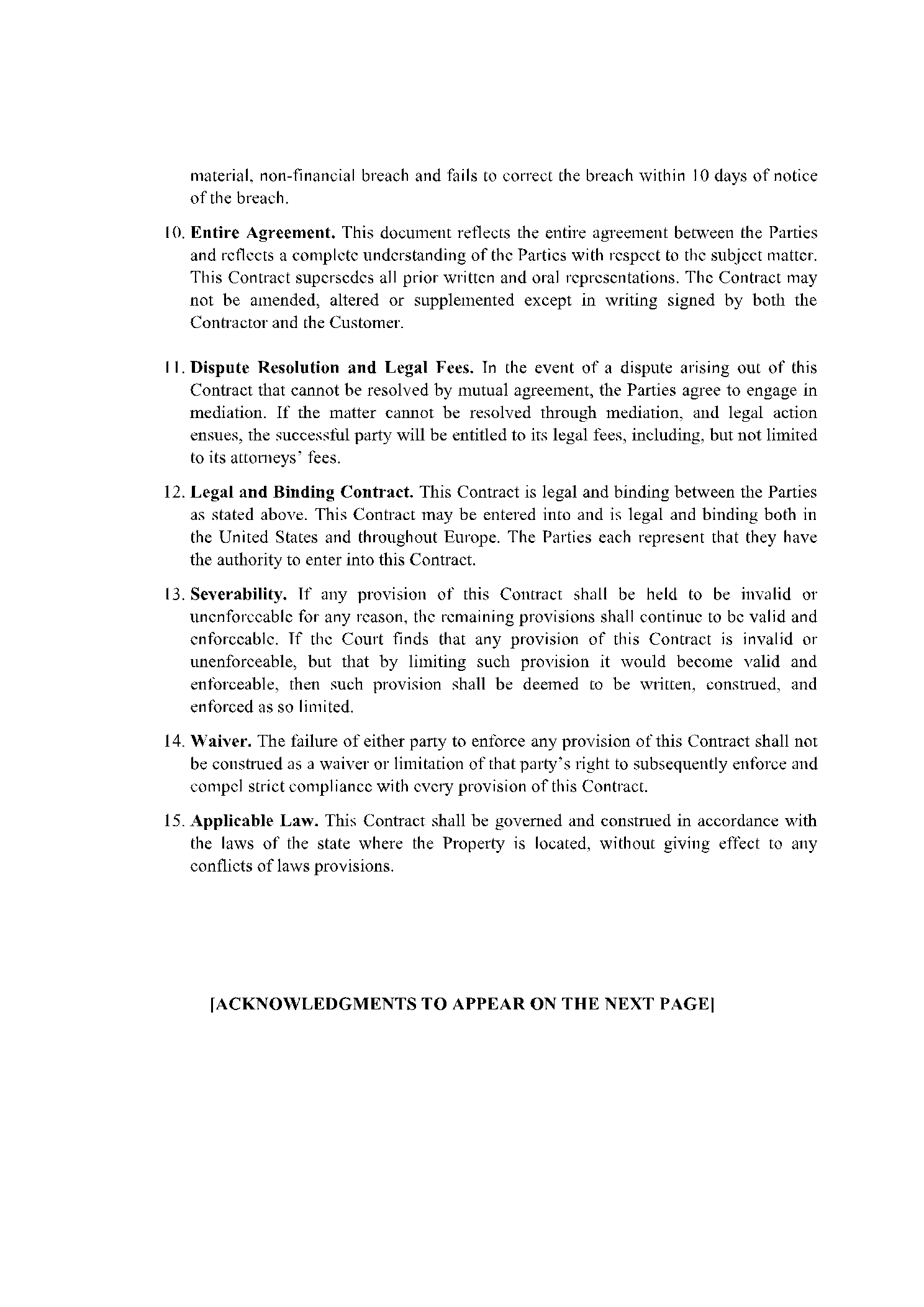Remodeling a property is not just about creating blueprints and estimates. It is also necessary to get into a remodeling contract that illustrates the project in detail. The primary purposes here are legality and accountability.
What is a Remodeling Contract?
Free remodeling contract is a legal document containing the details of the remodeling work that two or more parties have agreed on. In other words, it details the scope of the work and holds each party accountable.
The parties, at the minimum level, involve a client (ordering the remodeling services) and a contractor (providing the remodeling services). The document doesn’t necessarily cover all of the details associated with the project in depth. Instead, it can refer to the in-depth materials as an attachment.
Whether you are a client, or a remodeling service provider, you can always avail yourself of free printable home improvement contracts online, and personalize your own remodeling agreement.
When And Why Do I Need a Remodeling Contract?
A remodeling contract must be drawn up every time a project is to be kicked off.
- Project Road Map
The contract serves as a foundation for the end goal -- and how you’re going to reach there. When both parties sit down to create the remodeling contract, they must discuss the scope of the work, materials to be used, selection sheet, and drawings.
- Accountability
The contract will legally determine if both the parties are sticking to their commitments, meeting the deadlines, and living up to their promises. If either party veers away from their commitment, the contract makes it easy to hold them accountable sooner rather than later.
- Warranty Or Guarantee
While many remodeling contractors genuinely offer warranties or guarantees as they claim, some may employ this advertising technique just to gain customers.
If you’re finalizing a contractor based on their warranty offers, you must get into a remodeling contract and note down all the claims the contractor is making.
- Peace Of Mind
Finally, having a free remodeling contract signed in place, you can be sure that the project is less likely to go haywire. Any professional organization or contractor will refrain from contract violations. Even if it does to any degree, you can get legal help and seek reimbursement for the damages, if any.
Part 3: What To Include In A Remodeling Contract?
This is the most important to ask when preparing a free remodeling contract for your project. You should know what to include and what not. Ideally speaking, here are the essentials a good remodeling contract should include:
- Scope of Work
The first thing you need to document is the scope of the project and the service expectations. This should be as detailed as possible, covering everything so as to avoid confusion.
- Duration
How long is the contractor expected to work on the remodeling work? In other words, how soon should he/she complete the project and handover?
- Cost Estimate
How much is the remodeling work going to cost the service procurer? When writing down the cost estimate, it should be an approximate figure, as pricing may fluctuate in the future. But it is recommended to keep a track of every price derivation from the anticipated amount.
- Cabinet And Furniture Handling
Remodeling involves the movement of in-house furniture and installed cabinets. Who is responsible for them and what is the protocol for their handling?
- After-Service Support
After the project is completed, does the responsibility of the contractor end as well? If not, the contract should state what they expected to do after the project is accomplished.
- Termination Of Project
Under what circumstances the project is terminated by either the customer or contractor? This should be very detailed and precise.
Types of Remodeling Contracts?
In the world of construction, there are mainly two types of remodeling contracts. These are:
- Fixed-Price Contract
The fixed-priced remodeling contract covers everything from labor cost, material cost, profit margin, and contingency cost and sums it up to a fixed price. This means that the contractor will not exceed the price under the agreed terms and conditions. If they do end up exceeding, then they are on the hook and may have to reimburse from their own pocket.
- Cost-Plus Contract
This type of remodeling contract also covers labor cost, material cost, but excludes contingencies. Any additional cost in this regard shall be borne by the homeowner.
The Consequences Of Not Using A Remodeling Contract
While the importance of a remodeling contractor is insurmountable, it is often ignored by many. But as any experienced contractor or legal representative will tell you, this is a recipe for disaster. Since remodeling is a serious undertaking involving a large sum of capital, entering into a remodel contract is a must.
Looking for a free remodeling contract template word? CocoSign is here to your rescue. With an array of contract templates at your disposal, choose the one that fits you the best.



